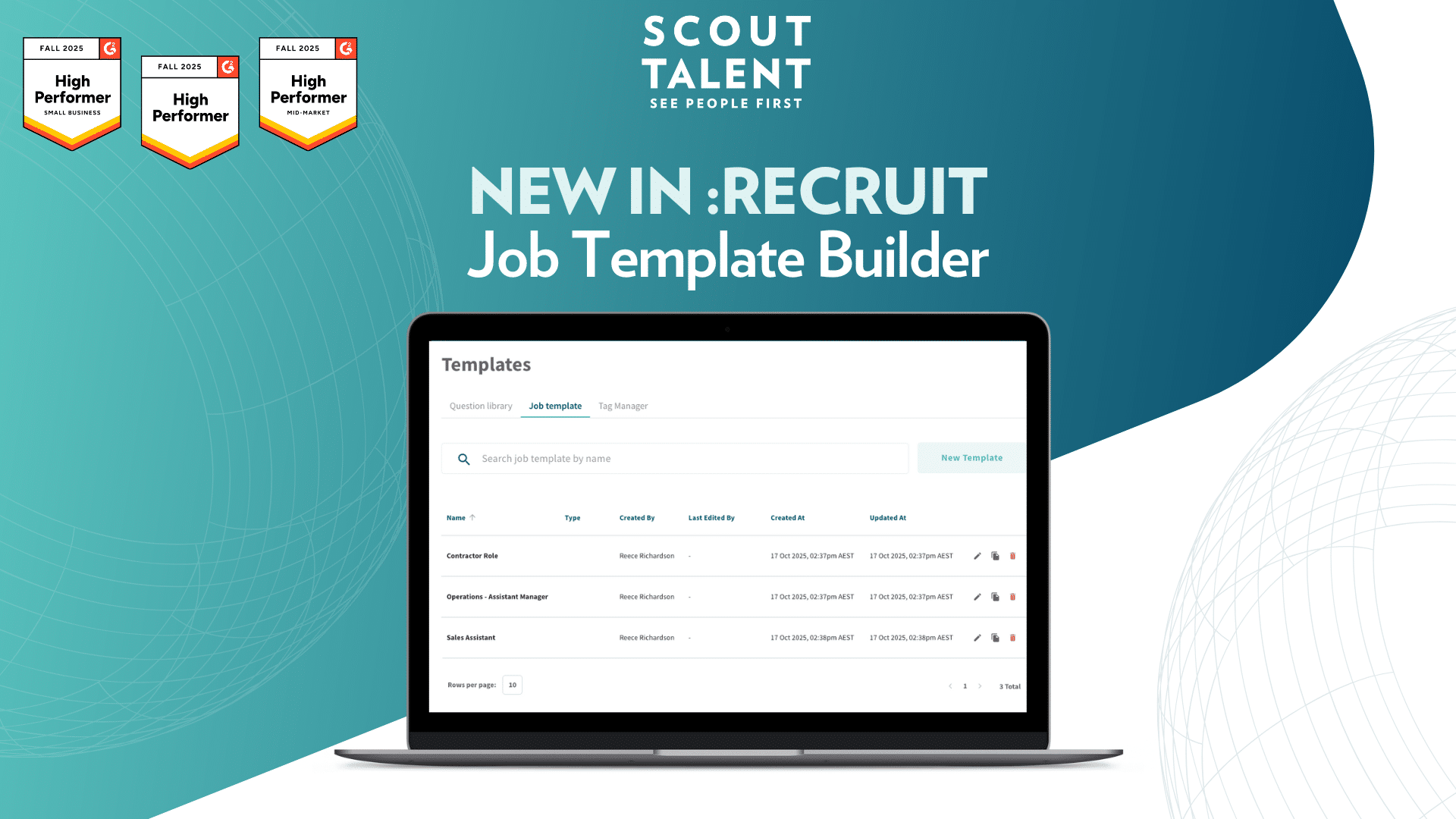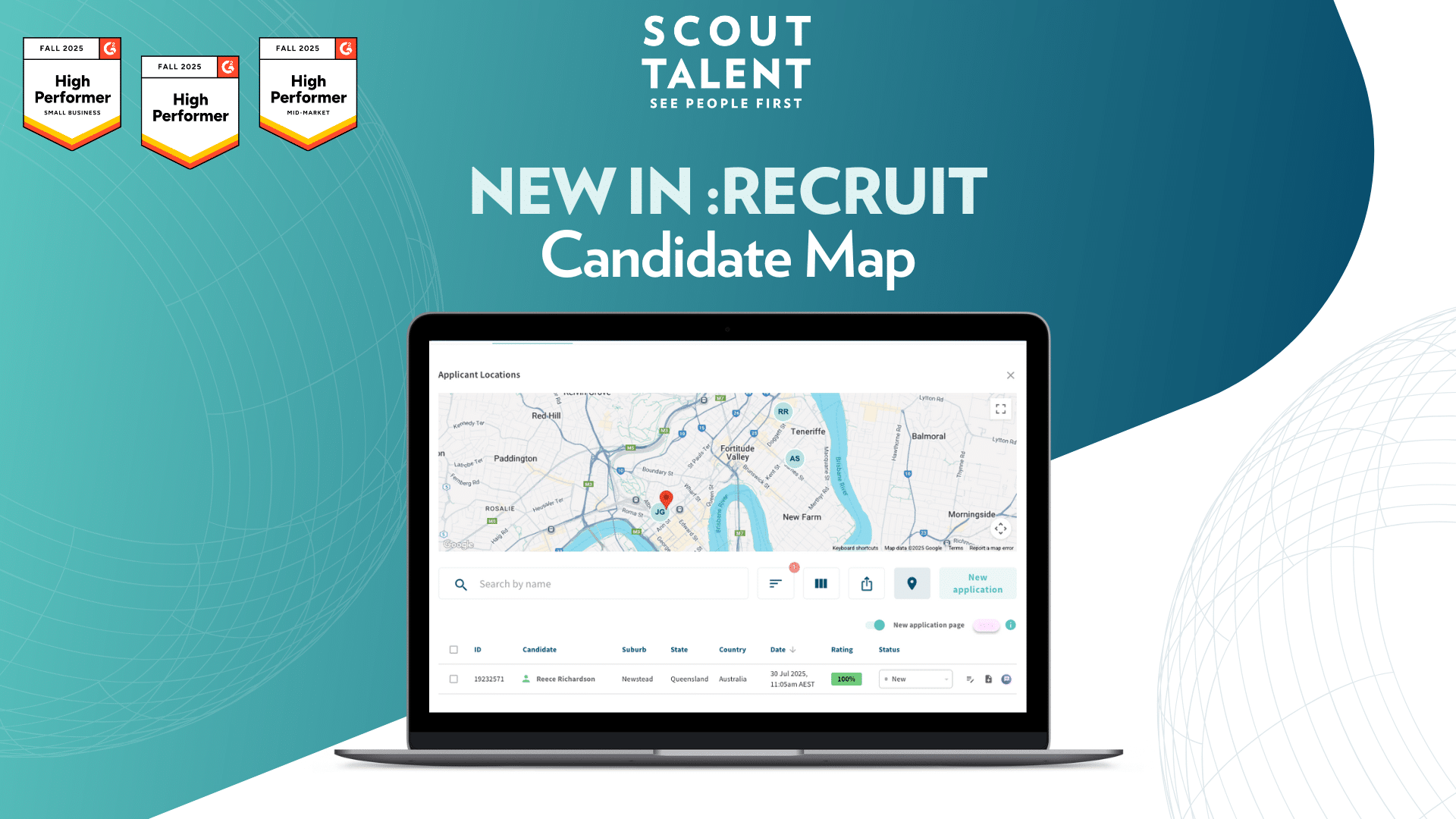We all understand the importance of prioritising candidate care and creating a great candidate experience. In this article we share one key strategy to take candidate experience to the next level, improve your processes and distinguish yourself from your talent competitors.
As talent professionals, many of us are aware that the candidate experience is more important than ever. And yes, we can already hear your under-your-breath “but we already know that” response, however, recent research by Talent Board reveals we’re not quite nailing it.
As the report reveals, if a candidate has a negative employer experience, they are increasingly inclined to sever the relationship. In fact, candidate resentment is on the rise, with a 40% increase since 2016. When you compare stats from 2018 and 2019, it also shows candidates are not only less likely to engage with the same employer again, they are also less likely to recommend that company to others.
What does it all mean? The trends basically lead to two slightly different conclusions. Either the candidate experience as a whole has gotten worse, or candidates are finding new ways to negotiate their own ways through the recruitment marketplace. It’s likely the results are a combination of both, however it does highlight some of the challenges both employers and recruiters are facing. So how can you improve the candidate experience your organisation delivers?
Communication is still important.
So we all know the importance of communication during the recruitment process – it’s a no brainer – and the research proves it as well. When you invest in communication, the candidate experience improves dramatically, and investing in the appropriate technology can give you a valuable means of creating positive experiences.
“Candidates who communicated with a chatbot were 80% more likely to increase their relationship with the employer, and candidates who received mobile text notifications during the research process rated their candidate experience 50% higher than those who did not”.
However, automation will only go so far, particularly when it comes to unsuccessful applications. Candidates still prefer to hear rejection news via a personal phone call rather than an automated email. In fact, positive candidate experience ratings increased by 23% simply from talking directly to another human. Astounding we know!
The best strategy? Two-way feedback.
The research shows opportunities for candidates provide feedback is the clear winner when it comes to improving their overall experience.
No matter stage of the recruitment process a candidate is at, solicitating their feedback is proven to increase their perception of the experience.
Here’s the proof, with statistics surrounding the type of feedback solicited and response rates from candidates:
- Application feedback – there was a 72% increase in a positive candidate experience and a willingness to increase the relationship with the organisation.
- Screening/interview feedback – there was a 148% increase in a positive candidate experience and a willingness to increase the relationship with the organisation.
- Before the start date – 76% of new hires were more than willing to increase their relationship with their new employer. Now that’s a great retention strategy!
So providing an opportunity for candidates to supply feedback (and possibly to also vent a little) not only improves the candidate experience, but can provide you with valuable data, which you can leverage to inform your ongoing strategy.
But like everything, it can either be done well … or not. Here are some tips on requesting feedback from candidates:
- Systemise the process. When setting up a feedback process, organisations often spend too much time tweaking surveys and not enough time refining the process. Establishing regular contact with your candidates will ensure their experience is still fresh in their minds and their feedback more relevant.
- Streamline the survey. Keep it succinct and focus on the respondent’s actual experience. Content should include the source of the recruitment advertisement and how they found you, the interview and job offer processes, the reasons for accepting/declining, their overall satisfaction and ideas for improvement, and (while you’ve got them) an opportunity for them to refer a friend to your business or services.
- Offer incentives. These should be offered to those who complete the survey (not just start it), which will encourage richer, more reliable data. Gift vouchers, iTunes credits, movie passes … all work well, and are easily managed from a logistical point of view (compared to ‘go into the draw’ scenarios).
- Leverage testimonials. Happy customers and their opinions can be powerful advocates for your business, so milk those positive comments as much as possible!
For more information about improving your candidate experience, speak with our Shortlisting and Selection Specialists. Contact us on 1 866 474 3140 or email us at mark@scouttalent.ca.




